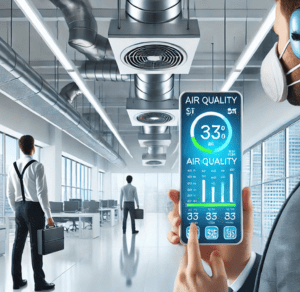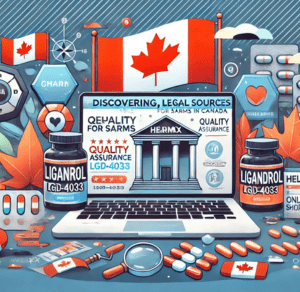For small businesses, obtaining ISO certifications such as ISO 9001 (Quality Management System – QMS), ISO 14001 (Environmental Management System – EMS), ISO 27001 (Information Security Management System – ISMS), ISO 22000 (Food Safety Management System – FSMS), and ISO 45001 (Occupational Health and Safety – OH&S) can be transformative. These internationally recognized standards not only enhance operational efficiency but also improve credibility, open doors to new markets, and help maintain compliance with regulatory requirements. Adopting these standards in an integrated manner can make implementation simpler, faster, and more cost-effective. This article will explore how each certification can benefit small businesses and how integrating them can streamline the process.
ISO 9001: Quality Management System (QMS)
ISO 9001 is the most widely used standard for Quality Management Systems (QMS) globally. It provides a framework for ensuring that businesses consistently meet customer and regulatory requirements. For small businesses, obtaining ISO 9001 certification enhances operational efficiency, helps reduce mistakes, and improves customer satisfaction.
Example: A small electronics repair shop can implement ISO 9001 to standardize repair procedures and quality checks. This ensures that every repair meets the same high standards, reducing the number of return visits from customers due to poor-quality work.
By having ISO 9001 certification, the shop can differentiate itself from competitors, attract new clients, and build a reputation for quality, which can lead to higher customer retention and more significant business opportunities.
ISO 14001: Environmental Management System (EMS)
ISO 14001 provides the framework for an Environmental Management System (EMS), helping businesses reduce their environmental impact. For small businesses, this certification shows a commitment to sustainability, which can improve market reputation and reduce operational costs through better resource management.
Example: A small cleaning products company switches to eco-friendly raw materials and implements waste-reduction processes using ISO 14001 guidelines. By formalizing these efforts, the company cuts down on chemical waste and energy consumption, reducing its overall operating costs.
ISO 14001 certification also enables the company to target environmentally conscious customers, helping it stand out in a crowded market and align with the growing demand for sustainable products.
ISO 27001: Information Security Management System (ISMS)
In today’s data-driven world, protecting sensitive information is crucial for any business. ISO 27001 provides a framework for an Information Security Management System (ISMS) that helps businesses manage risks related to data security. For small businesses, ISO 27001 certification ensures that customer data, intellectual property, and business information are secure. A good IT system administrator can help you design your system.
Example: A small accounting firm could use ISO 27001 to secure sensitive client financial information, ensuring that data is encrypted, access is restricted, and backup systems are regularly tested. This certification not only protects the firm from data breaches but also helps it meet the stringent requirements of larger clients who need assurance of information security.
By obtaining ISO 27001 certification, the firm demonstrates its commitment to data security, building trust with clients and gaining a competitive edge in industries where confidentiality is key.
ISO 22000: Food Safety Management System (FSMS)
ISO 22000 sets out the framework for a Food Safety Management System (FSMS) that helps businesses in the food supply chain ensure food safety and prevent contamination. For small businesses involved in food production or distribution, ISO 22000 certification is essential for maintaining food safety and meeting regulatory standards.
Example: A small food processing company that supplies packaged meals to local supermarkets could implement ISO 22000 to ensure that food safety hazards are controlled at every stage of production, from sourcing raw ingredients to packaging and distribution. This reduces the risk of contamination and ensures compliance with food safety laws.
ISO 22000 certification enables the business to build trust with retailers and consumers alike, helping it expand its reach into new markets and avoid costly food recalls or legal issues.
ISO 45001: Occupational Health and Safety (OH&S)
ISO 45001 helps businesses ensure safe working conditions for employees by establishing an Occupational Health and Safety (OH&S) management system. For small businesses, particularly those in hazardous industries like manufacturing or construction, ISO 45001 certification can significantly reduce workplace accidents, improve employee morale, and demonstrate a commitment to worker safety.
Example: A small metal fabrication workshop could implement ISO 45001 to create a safety management system that includes regular equipment inspections, employee safety training, and a process for reporting potential hazards. This not only helps reduce injuries but also lowers absenteeism and insurance costs.
ISO 45001 certification reassures clients and partners that the company is serious about safety, which can be a deciding factor when competing for contracts with larger organizations that prioritize safety in their supply chains.
The Power of an Integrated Approach
While each ISO certification brings its own set of benefits, many of them share common elements like risk management, process improvement, and compliance with legal requirements. Small businesses can take advantage of these overlaps by adopting an Integrated Management System (IMS) that combines ISO 9001, ISO 14001, ISO 27001, ISO 22000, and ISO 45001 into one cohesive system.
By integrating these systems, businesses can reduce duplication of work, simplify internal processes, and cut down on the time and costs associated with certification. For example, many ISO standards require document control, internal audits, and corrective actions. An integrated approach allows businesses to streamline these processes across multiple standards, making it easier to manage and maintain compliance.
Example of an Integrated System:
A small logistics company might pursue both ISO 9001 for quality management and ISO 14001 for environmental management. By integrating these two systems, the company can establish unified procedures for quality control and environmental performance, such as managing fuel efficiency for its delivery fleet. This reduces the time and resources required to maintain separate systems, while simultaneously improving operational efficiency and sustainability.
By adopting an integrated approach, the company can also reduce the costs of certification audits, as auditors can assess multiple standards in one visit. Moreover, an integrated system makes it easier to engage employees, as they can focus on meeting broader business objectives rather than juggling different compliance requirements for each certification.
Conclusion
ISO certifications such as ISO 9001, ISO 14001, ISO 27001, ISO 22000, and ISO 45001 offer invaluable benefits to small businesses, helping them enhance quality, reduce environmental impact, safeguard data, ensure food safety, and protect employee health. These certifications improve operational efficiency, build customer trust, and open doors to new market opportunities. Moreover, by implementing these standards in an integrated way, small businesses can simplify the certification process, reduce costs, and make ongoing management more streamlined.
In today’s competitive business landscape, ISO certifications provide small businesses with the tools they need to succeed, ensuring long-term growth and sustainability while meeting the evolving demands of customers, regulators, and partners.






